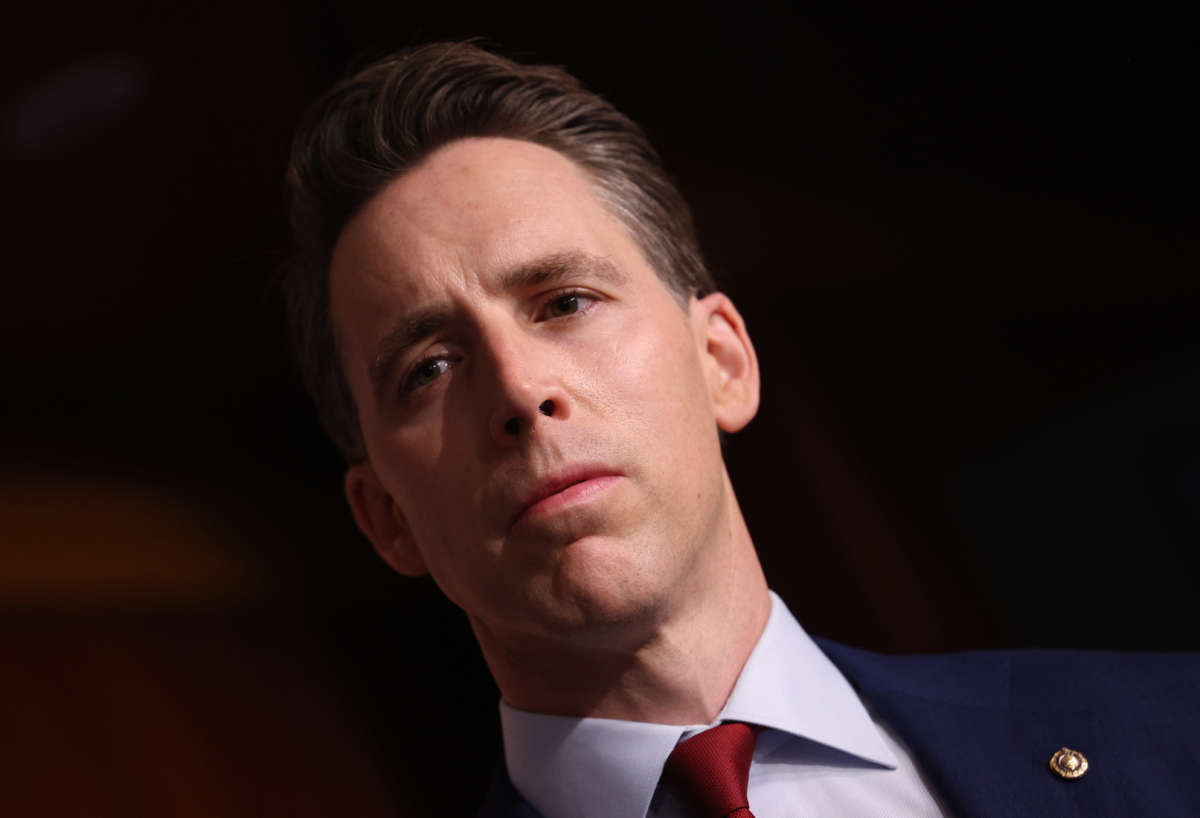Sen. Josh Hawley (R-Missouri) is attempting to take conservatives’ latest culture war topics, ranging from spurious to dangerous, to Congress, announcing a number of amendments to the Democrats’ $3.5 trillion reconciliation package that he plans to introduce as the Senate takes up debate on the resolution.
Hawley unveiled his planned amendments on Monday that were reflective of a far right extremist agenda. He includes proposals like barring critical race theory in federal diversity training, prohibiting the federal government from establishing universal pre-kindergarten, which Democrats have proposed, and restricting funding from schools taking steps to prevent the spread of COVID-19.
Other amendments would promote “patriotic education” to “teach students to love America,” pull U.S. funding from the World Trade Organization and, ghoulishly, bar health care workers from providing gender affirming care for transgender people.
The amendments, covering a wide swath of topics that many Republicans have taken up in state governments, are a show of the priorities on the right to endanger adults’ and children’s mental and physical health while indoctrinating children through barring the teaching of topics related to race and equity. They have little to do with the Democrats’ reconciliation bill, which is aimed at addressing the climate crisis, strengthening the safety net for Americans and expanding Medicare coverage.
The proposals are especially ironic as Republicans have complained for months that the bipartisan bill is “not really an infrastructure bill,” as Hawley claimed last week. “This is a woke politics bill that is being paid for with hundreds of billions of dollars in pork-barrel spending,” he said, complaining, too, about the deficit that Republicans had a huge hand in creating.
What Hawley was complaining about was a single line in the bill, which said that a program expanding broadband access for disadvantaged people couldn’t discriminate based on race, gender identity, sexual orientation, or otherwise. He implied that trans people shouldn’t be a protected class and went on to extrapolate that the infrastructure bill, which has already been watered down massively by Republicans, was a “far-left” bill with proposals that aren’t related to infrastructure.
Besides the fact that the infrastructure bill is a far cry from what progressives and even Joe Biden himself have proposed, Hawley’s view of issues he thinks are politicized in the infrastructure bill is dwarfed by his own budget reconciliation amendments.
Assuming that they were morally equal, proposing that all people should have an equal opportunity to access broadband assistance from the federal government is a much less consequential idea than disincentivizing schools from preventing the spread of COVID-19 — and that’s just one of his proposals.
But, while the goal of equal access within one part of the infrastructure bill is arguably a noble cause, Hawley’s proposals have the potential to be incredibly destructive. Right now, as schools reopen and children under 12 still can’t be vaccinated, children account for 15 percent of COVID cases in the U.S., a recent report has found. And adopting a law barring trans people from accessing health care, for instance, would have monumentally detrimental consequences for trans people and their families and is a direct attack on the LGBTQ community’s health.
Further, Hawley’s amendments have less to do with the reconciliation package than the clauses in the bipartisan bill he says aren’t related to infrastructure. While he complained about climate provisions in the infrastructure bill — of which there are very few — many of his proposals have almost nothing to do with the budget reconciliation process. Climate, as advocates have pointed out time and again, has everything to do with infrastructure, while promoting a “patriotic education” has nothing to do with the federal budget.
Join us in defending the truth before it’s too late
The future of independent journalism is uncertain, and the consequences of losing it are too grave to ignore. To ensure Truthout remains safe, strong, and free, we need to raise $27,000 in the next 24 hours. Every dollar raised goes directly toward the costs of producing news you can trust.
Please give what you can — because by supporting us with a tax-deductible donation, you’re not just preserving a source of news, you’re helping to safeguard what’s left of our democracy.
